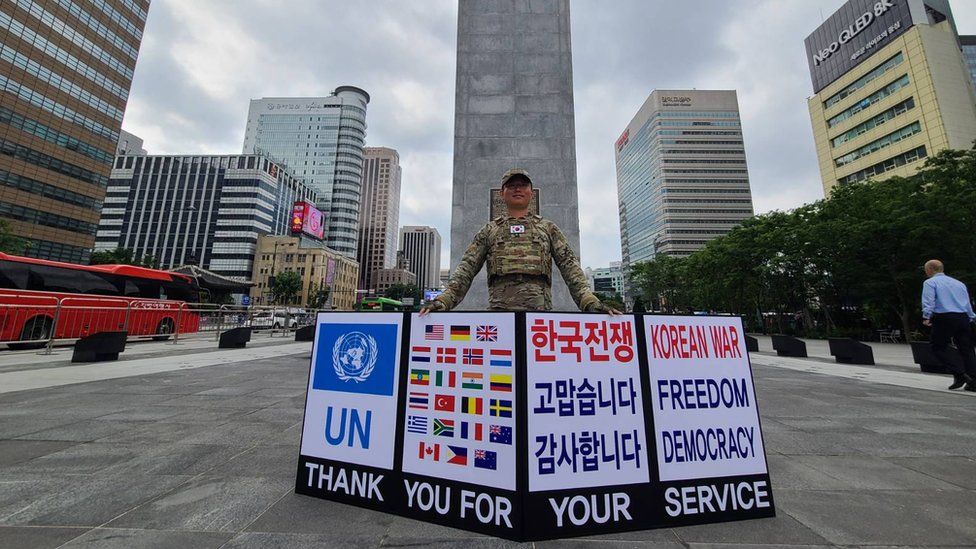Providing Weapons To Ukraine Amid North Korean Troop Involvement

Reports of North Korean troops fighting alongside Russian forces in Ukraine are significantly influencing South Korea's military stance. As the war drags on, South Korea is contemplating supplying weapons to Ukraine for the first time. This potential move could be crucial for Ukraine as it seeks to enhance its defense during a challenging phase of the conflict.
Historically, South Korea has aligned closely with the United States and has shown support for Ukraine. However, it has hesitated to provide lethal aid, focusing instead on humanitarian assistance such as medical supplies. Nevertheless, recent developments have prompted Seoul to consider "phased measures" against North Korea and Russia, which may include supplying offensive weapons to Ukraine.
The situation has escalated as Kyiv struggles to maintain its artillery and air defense capabilities, facing another tough winter in the ongoing war. This shift in policy marks a significant departure for South Korea, indicating a growing concern over North Korea's involvement in the conflict and its implications for regional security.
The Implications of North Korean Troops in Ukraine
The involvement of North Korean troops in the ongoing conflict in Ukraine raises serious concerns for South Korea and the international community. Reports suggest that as Russian President Vladimir Putin finds it increasingly difficult to recruit local soldiers, he turns to North Korea for support. This reliance on North Korean military resources highlights the desperation within Russia's military strategy.
South Korea's call for the immediate withdrawal of North Korean troops underscores the gravity of the situation. Officials in Seoul have emphasized that they will not passively observe this illegal military collaboration between North Korea and Russia. Instead, they intend to respond decisively in cooperation with the global community to counteract these developments.
Strategic Response from South Korea
In light of North Korea's actions, South Korea is evaluating its military capabilities and the potential for increased support to Ukraine. South Korean officials are reportedly considering deploying personnel to Ukraine to monitor North Korea's activities directly. This proactive stance reflects a significant shift in South Korea's approach, moving from a defensive posture to a more assertive role in international security.
Experts note that South Korea possesses a substantial stockpile of military equipment and has the potential to become a key supplier of NATO-standard arms to Ukraine. The ramifications of such a decision could reshape the dynamics of the conflict and alter the geopolitical landscape in the region.
The Evolving Geopolitical Landscape
The ongoing conflict has prompted an evolution in alliances and perceptions of security in the region. As North Korea strengthens its ties with Russia, South Korea is increasingly concerned about its security and the implications of these alliances. The potential for South Korea to provide military assistance to Ukraine signals a shift in the balance of power and alliances in Northeast Asia.
Moreover, this situation emphasizes the interconnectedness of global security issues. As nations reassess their strategies and partnerships, the importance of collaboration against common threats becomes clearer. South Korea's potential military support for Ukraine could reinforce bonds with Western allies and demonstrate a united front against aggression.
Conclusion: A Critical Juncture for South Korea
In conclusion, South Korea stands at a critical juncture in its foreign policy and military strategy. The potential provision of weapons to Ukraine represents not just a tactical shift but a broader commitment to regional security and international cooperation. As the geopolitical landscape continues to evolve, South Korea's decisions will be closely monitored by both allies and adversaries alike.
As this situation unfolds, it is vital for South Korea to navigate these challenges carefully, balancing its national interests with its obligations to international partners. The implications of its actions could resonate far beyond the battlefield, influencing security dynamics in Northeast Asia and beyond.
ncG1vNJzZmirn521b6%2FOpmasp5idu6bD0rCcnmxfq7misMimoKtloKrBqrqMp6arrJhiuLC%2BxJpkrKelqbVuwNGopqmrXaq4s63Ip5xmaWlsf3p%2FmGefraWc